PA: A whole number with exactly two factors, 1 and itself.
Alg: What do we call the graph of a quadratic function?
PA: Prime #
Alg: Parabola
PA: Write each expression using exponents:
5x5x5x5x5x5x5x5x5x5x5x5x5x5x5x5x5
Alg:
#1) Does this graph in the back have maximum or minimum value?
#2) Which answer choice describes y = -3x2+7x-2 accurately?
a. opens up with a maximum
b. opens up with a minimum
c. opens down with a maximum
d. opens down with a minimum
PA: 517
Alg: Min
PA: Determine whether the number is prime or composite.
67
Alg: Draw a parabola that will have TWO REAL solutions.
PA: Prime
Alg: Your drawing should show a parabola (opening up or down is fine) that crosses the x-axis in TWO places! Two examples are shown below.
PA: Find the product or quotient. Express using exponents. (-3)3(-3)5
Alg: What are the green dots called?
PA: (-3)8
Alg: roots or x-intercepts
PA: Write the expression using a positive exponent.
3⁻5
Alg: What is the degree of every Quadratic Equation?
PA: 1/35
Alg: 2
PA: How would you write 0.0005 in scientific notation?
Alg: Write out the quadratic formula.
PA: 5 x 10-4
Alg:
PA: Tells us how many times a number is used as a factor.
Alg:
The point in which a graph hits the x-axis is known as the _____
PA: Exponent
Alg: Root or x-intercept
PA: Write each expression using exponents:
(Y)(Y)(Y)(Y)(Y)(Y)(Y)(Y)(Y)(Y)(Y)(Y)(Y)(Y)(Y)(Y)(Y)(Y)(Y)(Y)(Y)(Y)(Y)(Y)(Y)(Y)(Y)(Y)(Y)(Y)
Alg:
Which answer choice describes y = -3x2+7x-2 accurately?
a. opens up with a maximum
b. opens up with a minimum
c. opens down with a maximum
d. opens down with a minimum
PA: Y30
Alg: C
PA: Determine whether the number is prime or composite.
91
Alg: Draw a parabola that will have ONE REAL solution.
PA: Composite
Alg: Your drawing should show a parabola (opening up or down is fine) that crosses the x-axis in ONE place! Two examples are shown below.
PA: Find the product or quotient. Express using exponents.
n27*n12*t43*t17
Alg: Which equation below is a quadratic function translated up 5 units?
a. y = x2 + 5
b. y = (x + 5)2
c. y = 5x2
d. y = -x2 - 5
PA: n39t60
Alg: A
PA: Evaluate the expression
3⁻5
Alg: Find the value of c that makes the trinomial a perfect square.
x2-24x+c
PA: 243
Alg: 144
PA: How would you write -5.6 x 10-3 in standard form?
Alg: What should you do first in solving this equation?
x2 + 6x - 13 = 3
PA: -0.0056
Alg: Make it equal 0 by subtracting 3 on each side
PA: The shape of the graph of the equation y=x2+1. This curve formed by the quadratic equation is called the __________.
Alg: What is the maximum/minimum of a parabola called?
PA: Parabola
Alg: Vertex
PA: Write the expression using exponents:
r * r * r * r * r * r * r * t * -u * -u * -u
Alg: What is the y intercept for the equation: y= -8x2+3x-7
PA: r7 * t * (-u)3
Alg: (0, -7)
PA: Find the prime factorization of 18 using exponents for repeated factors.
Alg: What are the solutions to the to the quadratic function whose graph is shown below?
PA: 2 • 32
Alg: x = -3 & 2
PA: Find the product or quotient. Express using exponents.
(-4n2)(5n12)(2t4)(4t7)
Alg: Which equation below is a quadratic function translated left 4 units?
a. y = x2 + 4
b. y = (x + 4)2
c. y = (x - 4)2
d. y = 4x2
PA: (-20n16)(8t11)
Alg: B
PA: Write the fraction as an expression using negative exponents other than -1.
1/196
Alg: Find the value of c that makes the trinomial a perfect square. x2+5x+c
PA: 14-2
Alg: c= 6.25
PA: Why do we use scientific notation?
Alg: Identify the a, b and c values for this equation:
3x2 - 8x + 15 = -12
PA: A short way to write really large or really small numbers
Alg: a= 3, b= -8, c= 27
PA: Which of the following is an exponential function?
a. y = x2
b. f(x) = 3x3
c. y = x3
d. f(x) = 3x
Alg: What is the axis of symmetry?
PA: D
Alg: the dividing line for a parabola
PA: Write the expression using exponents:
5 * 5 * (-2) * (-2) * r * r * r * r
Alg:
What is the vertex of this parabola?
PA: 52 * (-2)2 * r4
Alg:(−1, 3)
PA: Find the prime factorization of -735g2h4 using exponents for repeated factors.
Alg: Solve by graphing x2+6x+9=0
PA: -1 * 3 * 5 * 72 * g * g * h * h * h * h
Alg: -3
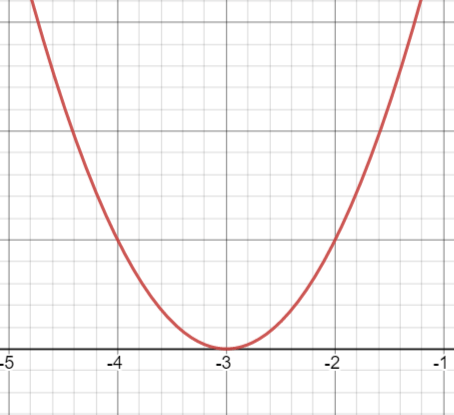
PA: Evaluate the expression using the quotient rule.
Alg: If the blue is f(x)=x2, then the red must be g(x)=...
PA: 8x4
Alg: g(x)=x2-5
PA: The distance between the Earth and the sub is about 1/216 the diameter of the solar system. Express this number using a negative exponent other than -1.
Alg: Solve the equation by completing the square. Round to the nearest tenth. x2-8x+15=0
PA: 6-3
Alg: 3, 5
PA:
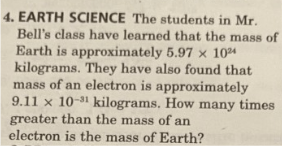
Alg: Solve by using the quadratic formula. Round to the nearest tenth. 2x2 + 12x + 10 = 0
PA: 6.55 x 1054 times greater
Alg: x = -5, x = -1
PA: Where the parabola crosses the y-axis. This is called...
Alg: Does the following quadratic equation have a maximum or minimum value? How can you tell?
y=x²+2x-3
PA: The y-axis
Alg: Minimum value, because the a value is positive.
PA: Evaluate the expression if a= -3, b= 8, c= 2.
b2a - c3
Alg:
Where is the axis of symmetry for this parabola?
PA: -200
Alg: x= -1
PA: Twin primes are a pair of consecutive odd primes, which differ by two. For example, 3 & 5 are twin primes. Find the twin primes less than 100. (Hint: there are 8 pairs of twins less than 100).
Alg: Solve by graphing x2-5x+6=0
PA: 3&5, 5&7, 11&13, 17&19, 29&31, 41&43, 59&61, 71&73
Alg: 2, 3
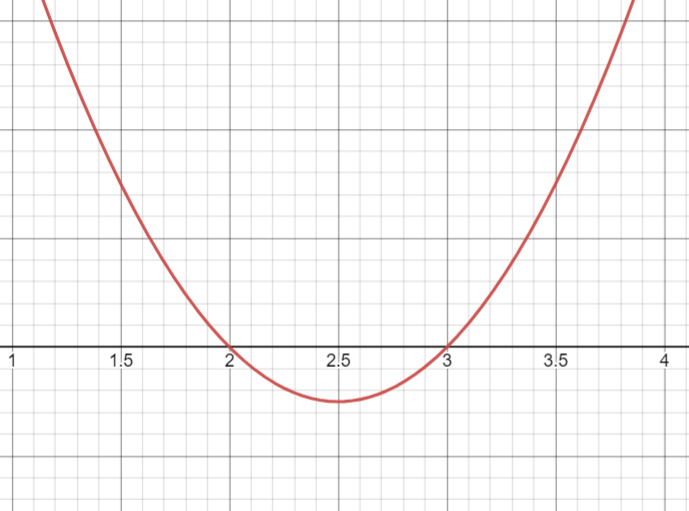
PA:

Alg:
PA:
Alg: G
PA: There are 10-1 meters in 1 centimeter. At the site of an automobile accident, a state trooper uses a measuring tape to determine that the width of the tire track is 20 cm. Express this number as a fraction of a meter in simplest form.
Alg: Solve the equation by completing the square. Round to the nearest tenth. x2-4x+1=0
PA:
20/100 = 1/5 meters
Alg: 0.3, 3.7
PA:
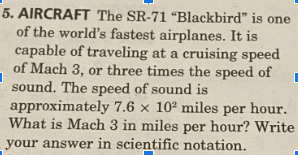
Alg: State the value of the discriminant for the equation. Then determine the number of real solutions of the equation.
x2+3x+12=0
PA:
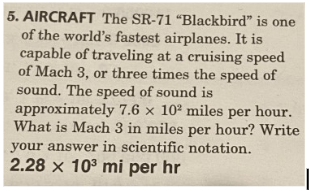
Alg: discriminant = -39, no real solutions









